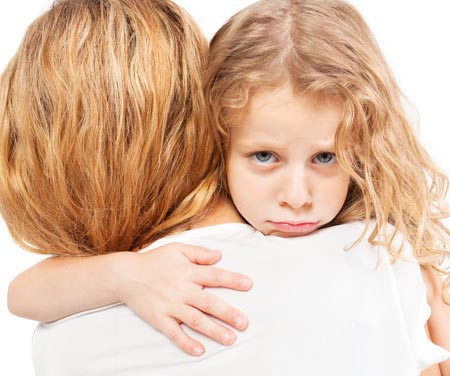 Childhood anxiety is on the rise, and bad parenting isn’t always the culprit. In fact, there are multiple ways that otherwise good parents can contribute to their child’s anxiety. Some of these ways are pretty surprising, especially when parents are usually just trying to act with their child’s best interests in mind.
Childhood anxiety is on the rise, and bad parenting isn’t always the culprit. In fact, there are multiple ways that otherwise good parents can contribute to their child’s anxiety. Some of these ways are pretty surprising, especially when parents are usually just trying to act with their child’s best interests in mind.
Many of the parenting pitfalls that lead to child anxiety are rooted in good intentions. According to Karen Banes, who recently authored an article on this very topic in the Washington Post, the main ways that good parents add to their child’s anxiety include:
Caring…A Lot
Children often take their emotional cues from their parents, so the more you react to something, the more they will, too. This can be a problem when it comes to the things your child shares with you, like when your child returns home from school and fills you in on all the details regarding the negative behaviors they may encounter from the kids and teachers in class. Instead of visibly showing your concern, try and be understanding and emotionally supportive—but not anxious yourself—instead. If you’re not worried about it, they may not be, either.
Always Going to Bat
As much as we may want to rush up to school and immediately solve every problem our children tell us about, it can be a mistake to do this excessively. Such actions inhibit your child’s feelings that they can share things with you in confidence, while undermining their sense that you have confidence in them to resolve their own problems. Make sure your children understand that you will only get involved with fixing their dilemmas with their knowledge and consent, and only after first working with them to explore options where they can approach the problem themselves.
All too often, parents react overtly to their child’s weaknesses, like promptly hiring tutors when the child struggles in a specific subject, or intensifying exercise regimens when a child has trouble with sports. This trains children to dwell on the negative, when in fact they should be concentrating on the positives: The things they are good at doing. This is something that many adults learn to practice in their own lives, yet may not instill in their kids. So instead of devoting excessive time to improving upon your child’s unique shortcomings, spend that time doing the things they excel at. The resulting confidence boost may carry over into the underdeveloped aspects of their lives.
Creating Too Much Hype
While redirecting your attention to your child’s strengths (instead of weaknesses) can be helpful toward limiting their anxiety, hyping too much on those strengths can have the opposite effect. When parents continually stress their child’s excellence in pursuits such as school and sports, they continually raise the expectations—and pressure—experienced by the child, leading to a rise in anxiety. Be sure to compliment your kids on their achievements, but don’t use that as a justification to raise expectations and reduce the enjoyment associated with the activity.
Etching Values in Stone
Raising your children with sound values is extremely important and a core responsibility as a parent, but teach your child that values are not unbreakable/unchangeable, and that everyone makes mistakes. If your child feels that you will not forgive them for their errors—which, let’s face it, is part of growing up—they may not be comfortable sharing their concerns and problems with you. That can lead to a spike in their anxiety levels, with potentially dangerous outcomes. Suicide and drug addiction are two especially destructive paths kids may take when they feel they cannot discuss their failings, or the peer pressure they’re under to do something bad, without being in trouble or judged by you.
Not Sharing
Our first instinct as parents is often to shield our children from our own problems and worries, but in truth that can have a negative effect that leads to anxiety. Children are very perceptive and will know something is wrong, regardless of whether or not you share with them, but if you don’t tell them what’s happening, they’ll often imagine things that may be far worse than reality. You don’t need to sit down with your kids and show them your financial troubles on paper, for example, but do tell them you have concerns, and inform them of the measures you’re taking to overcome those concerns. This sets a great model for practical methods of handling anxiety that your children can learn from you, and then apply toward the anxiety they experience in their own lives.


